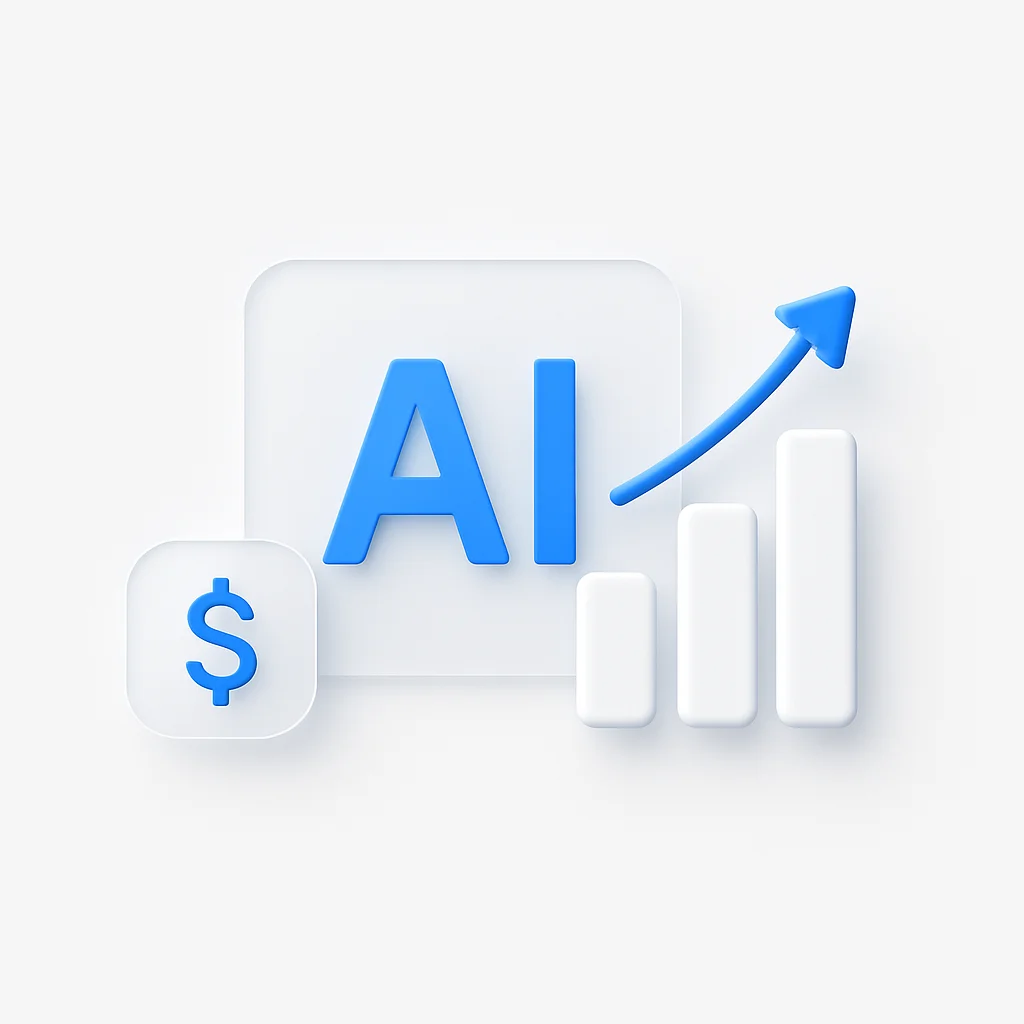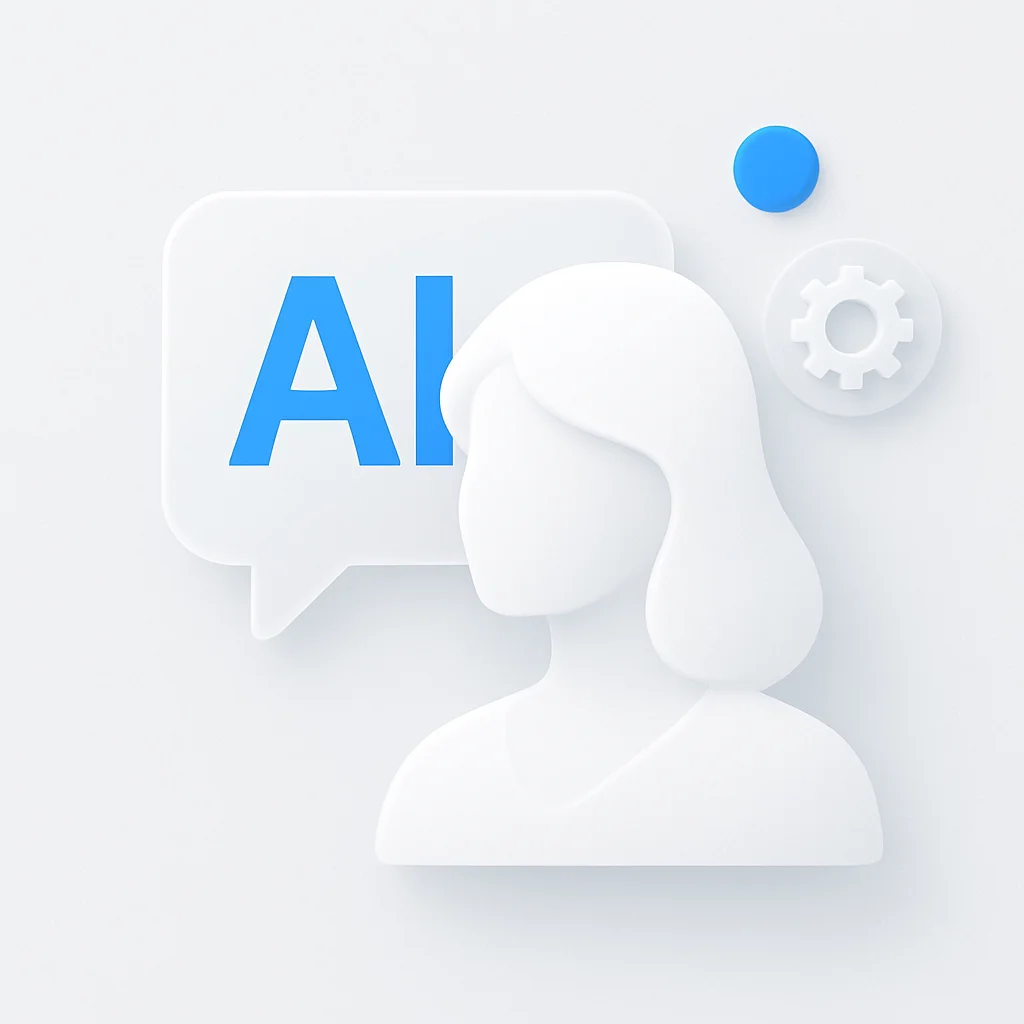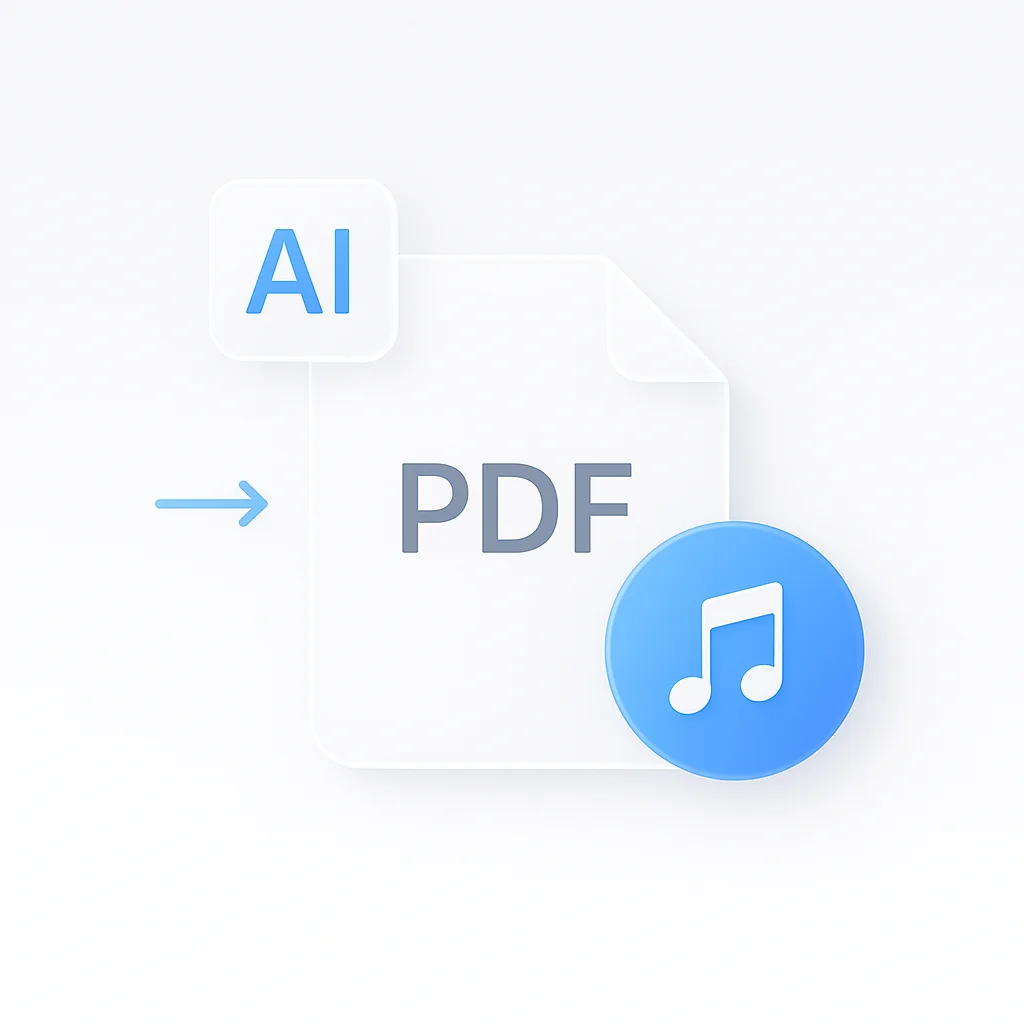From how you get a loan to how your bank detects fraud, artificial intelligence is no longer a futuristic concept in finance it’s the engine powering the modern Fintech industry. What once took weeks of paperwork and manual reviews now happens in minutes, thanks to sophisticated AI systems that can process thousands of data points faster than any human analyst.
This is your definitive guide to understanding AI in Fintech. We’ll break down the key fintech AI applications, showcase the top AI fintech companies leading the charge in 2025, and explore the real-world benefits that are reshaping how we interact with money every single day.
Whether you’re a financial professional looking to understand emerging technologies, an entrepreneur exploring fintech opportunities, or simply curious about how AI affects your daily banking experience, this guide provides the insights you need to navigate the AI-powered financial landscape.
Beyond Basic Algorithms: What is AI in Fintech?
AI in Fintech represents the use of advanced machine learning, predictive analytics, and natural language processing to create smarter, faster, and more secure financial services. Unlike traditional rule-based systems that follow predetermined paths, AI can adapt, learn, and make complex decisions based on vast amounts of data.
🎯 The Core Goals of Fintech AI
⚡ Automate Complex Processes
Replace manual, time-consuming tasks with intelligent automation that works 24/7.
🎯 Personalize Customer Experiences
Deliver tailored financial products based on individual behavior and needs.
🛡️ Manage Risk & Detect Fraud
Identify threats and assess risk more effectively than traditional methods.
According to McKinsey’s latest research, financial institutions using AI report an average cost reduction of 22% and revenue increases of up to 34% in areas where AI has been deployed.
Top 15 AI Fintech Companies to Watch in 2025
The fintech AI landscape is dominated by innovative companies that are redefining what’s possible in financial services. Here are the industry leaders transforming how we bank, invest, and manage money:
| Company | Specialization | Founded | Valuation | Status |
|---|---|---|---|---|
|
Upstart
AI-powered personal loans
|
Credit Risk Assessment | 2012 | $3.1B | PUBLIC |
|
HighRadius
Treasury & accounts receivable automation
|
Process Automation | 2006 | $3.1B | PRIVATE |
|
ZestFinance
AI-powered credit underwriting
|
Machine Learning Credit | 2009 | $272M | PRIVATE |
|
Kasisto
Conversational AI for banking
|
AI Chatbots | 2013 | $165M | PRIVATE |
|
Darktrace
AI cybersecurity for financial institutions
|
Cybersecurity | 2013 | $4.1B | PUBLIC |
|
Affirm
AI-driven "Buy Now, Pay Later" decisions
|
Consumer Credit | 2012 | $8.5B | PUBLIC |
Industry Leaders: The Detailed Breakdown
1. Upstart transforms personal lending by using AI to analyze over 1,600 data points beyond traditional credit scores. Their machine learning models have enabled approval of 27% more borrowers compared to traditional credit models while maintaining low default rates.
2. HighRadius automates accounts receivable and treasury processes using robotic process automation and machine learning. Their AI platform processes over $500 billion in transactions annually, reducing payment collection time by up to 30%.
3. ZestFinance (now Zest AI) specializes in AI-powered credit underwriting that helps lenders approve more borrowers while reducing risk. Their models have demonstrated the ability to reduce charge-offs by up to 40% compared to traditional scoring methods.
4. Kasisto develops conversational AI platforms specifically for banking, powering intelligent chatbots and virtual assistants. Their technology is used by major banks to handle over 10 million customer interactions monthly.
5. Darktrace provides AI-powered cybersecurity specifically designed for financial institutions, detecting threats in real-time using autonomous response technology. Their immune system approach has prevented over $2.7 billion in potential cyber damage.
6. Affirm revolutionizes “buy now, pay later” services through real-time AI credit decisions at point of sale. Their machine learning models analyze over 1,000 data points in seconds to approve instant financing, processing over $15 billion in annual merchant volume with dynamic pricing based on individual risk profiles.
7. DataRobot provides enterprise AI platform specifically tailored for financial institutions, enabling banks to deploy machine learning models without extensive data science teams. Their automated machine learning platform is used by 40% of Fortune 500 financial companies to accelerate AI adoption across credit risk, marketing, and operations.
8. Kensho Technologies (acquired by S&P Global) specializes in AI-powered investment research and analytics using natural language processing. Their platform processes millions of documents daily to provide real-time market insights, serving hedge funds and investment banks with alternative data analysis and predictive market intelligence.
9. Scale AI provides essential data infrastructure for training financial AI models, offering specialized data labeling and annotation services. They work with major banks and fintech companies to create high-quality training datasets for fraud detection, credit scoring, and document processing AI systems.
10. Bud Financial offers AI-powered financial insights and open banking solutions that help banks understand customer behavior and provide personalized recommendations. Their platform analyzes transaction data to deliver spending insights, budgeting tools, and targeted financial product recommendations to over 25 million consumers.
11. SESAMm uses AI and natural language processing to analyze alternative data sources for investment research and ESG scoring. Their platform processes news, social media, and web data to provide real-time sentiment analysis and risk assessment for institutional investors and asset managers.
12. Ayasdi (now part of SymphonyAI) specializes in AI-powered anti-money laundering and compliance solutions using topological data analysis. Their platform reduces false positives in AML investigations by up to 90% while identifying previously undetected suspicious activity patterns in financial transactions.
13. Featurespace provides real-time fraud detection and financial crime prevention using machine learning and behavioral analytics. Their ARIC platform monitors billions of transactions annually for major banks and payment processors, adapting to new fraud patterns without manual rule updates.
14. Socure leads digital identity verification using AI and machine learning to authenticate users and prevent synthetic identity fraud. Their platform combines traditional and alternative data sources to verify identities in real-time, helping financial institutions onboard legitimate customers while blocking fraudsters.
15. Vectra AI focuses on AI-driven cybersecurity specifically for financial services, using behavioral detection to identify insider threats and advanced persistent threats. Their platform monitors network traffic and user behavior to detect financial cyberattacks that traditional security tools miss.

For organizations looking to implement similar AI-powered automation in their operations, tools like ScreenApp’s meeting bot demonstrate how AI can streamline business processes and improve documentation workflows.
The 5 Key Applications of AI in Fintech
AI is transforming every aspect of financial services, from customer-facing applications to back-office operations. Here are the most impactful applications reshaping the industry:
1. AI-Powered Credit Scoring & Underwriting
Traditional credit scoring relies on limited data points like credit history and income. AI expands this analysis to include thousands of variables, creating more accurate risk assessments and enabling financial inclusion for previously underbanked populations.
How AI Credit Scoring Works:
- Alternative Data Analysis: Social media activity, utility payments, educational background
- Behavioral Patterns: Online shopping habits, device usage, location data
- Real-time Assessment: Instant loan decisions based on dynamic risk modeling
- Continuous Learning: Models improve accuracy over time with new data
2. Algorithmic Trading & Roboadvisors
AI algorithms execute trades at superhuman speeds and provide automated investment advice tailored to individual risk profiles and goals. The algorithmic trading market is expected to reach $18.8 billion by 2025.
Key Features:
- High-frequency trading processing millions of trades per second
- Portfolio optimization based on individual risk tolerance
- Market sentiment analysis using news and social media data
- Tax-loss harvesting automated for optimal returns
3. Fraud Detection & Cybersecurity
AI systems analyze transaction patterns in real-time to identify suspicious activity before it causes damage. Modern fraud detection systems can process over 100,000 transactions per second. For those looking to make major purchases, understanding how a loan for a car works can help you manage your financial commitments more effectively.

🔍 Advanced Fraud Detection Techniques
- Behavioral Biometrics: Analyzing typing patterns, mouse movements, and device handling
- Network Analysis: Identifying suspicious connections between accounts and transactions
- Real-time Monitoring: Instant alerts for transactions outside normal patterns
- Machine Learning Models: Continuously evolving to detect new fraud patterns
Results: Financial institutions using AI fraud detection report up to 70% fewer false positives and 50% faster fraud identification compared to rule-based systems.
4. Conversational Banking (AI Chatbots)
AI-powered chatbots handle customer inquiries 24/7, from account balances to complex financial advice. These systems now resolve 80% of routine banking queries without human intervention.
Advanced Capabilities:
- Natural language understanding in multiple languages
- Integration with core banking systems for real-time data
- Personalized financial recommendations
- Voice-activated banking through smart speakers
Many financial professionals are now using AI tools for automated note-taking to document client meetings and maintain detailed records of financial consultations.
5. Process Automation (RPA & BPA)
AI automates time-consuming back-office tasks, reducing costs and improving accuracy. Robotic Process Automation combined with intelligent document processing can handle up to 85% of routine financial operations.
Automated Processes Include:
- Document verification and KYC compliance
- Invoice processing and accounts payable
- Regulatory reporting and compliance checks
- Customer onboarding workflows
The AI Models Powering Fintech’s Future
Different AI models excel at specific financial tasks. Understanding these capabilities helps organizations choose the right technology for their needs:
🧠 AI Model Applications in Finance
Complex Problem-Solving
Models: Advanced reasoning systems (GPT-4, specialized financial AI)
Use Cases: Risk analysis, market prediction, regulatory compliance assessment
Report Generation & Communication
Models: Language models optimized for writing and analysis
Use Cases: Financial summaries, customer service chatbots, automated reporting
Algorithm Development
Models: Code-focused AI systems with visual reasoning
Use Cases: Trading algorithm development, system debugging, API integration
The choice of AI model depends on specific use cases. For instance, organizations implementing AI-powered meeting solutions often require different capabilities than those used for direct financial analysis, similar to how ScreenApp’s API provides flexible integration options for various business needs.
Benefits of AI in Fintech: Transforming Financial Services
The integration of artificial intelligence in financial services delivers measurable benefits across all stakeholders:
For Financial Institutions
- Cost reduction: Up to 40% reduction in operational costs
- Risk management: 50% improvement in fraud detection accuracy
- Customer acquisition: 30% increase in loan approvals
- Regulatory compliance: Automated reporting and monitoring
- Employee productivity: 60% faster document processing and analysis
- Market intelligence: Real-time insights for strategic decision-making
For Consumers
- Faster services: Instant loan approvals and account opening
- Personalized products: Financial services tailored to individual needs
- 24/7 support: AI chatbots available around the clock
- Better security: Enhanced fraud protection and identity verification
- Lower costs: Reduced fees through automated operations and competition
- Smart recommendations: AI-driven investment and savings advice
For Businesses
- Improved cash flow: Faster invoice processing and payment automation
- Better financial insights: AI-powered analytics reveal optimization opportunities
- Streamlined operations: Automated expense management and reporting
- Enhanced decision-making: Real-time financial data and predictive analytics
- Competitive advantage: Access to enterprise-grade financial tools previously available only to large corporations
Organizations seeking to leverage AI for business intelligence often start with foundational tools for documentation and analysis. For example, ScreenApp’s sales call analysis templates help businesses capture and analyze financial conversations more effectively.
The Future of AI in Fintech: What to Expect Next
The fintech industry is approaching several technological inflection points that will reshape financial services in the coming years:
Hyper-Personalization of Financial Products
AI will enable truly individualized financial products based on real-time behavioral data, life events, and changing financial circumstances. Rather than offering standardized products, banks will create unique financial solutions for each customer.
Increased Use of AI in Regulatory Compliance (RegTech)
🔮 RegTech Revolution
AI-powered regulatory technology will transform compliance from a reactive process to a proactive advantage:
- Real-time monitoring: Continuous compliance checking across all transactions
- Predictive compliance: AI anticipates regulatory changes and prepares systems
- Automated reporting: Generate complex regulatory reports automatically
- Risk scoring: Dynamic assessment of regulatory risk across all business areas
AI-Driven Financial Literacy Tools for Consumers
Next-generation financial education will be powered by AI tutors that adapt to individual learning styles and provide personalized guidance on everything from budgeting to investment strategy.
According to PwC’s Global Fintech Report, 77% of financial institutions plan to increase their AI adoption by 2026, with most investing in customer experience and operational efficiency improvements.
Frequently Asked Questions: AI in Fintech
What are the main benefits of AI in fintech?
AI in fintech delivers faster processing times (90% reduction in loan approvals), improved accuracy (70% fewer false fraud positives), cost reduction (up to 40% in operations), and enhanced customer experiences through 24/7 automated services and personalized products.
Will AI take fintech jobs?
AI transforms rather than eliminates fintech jobs. While routine tasks become automated, new roles emerge in AI development, data analysis, and customer relationship management. The industry is creating more specialized, higher-value positions that require human judgment and creativity.
What AI models are used in finance?
Financial institutions use various AI models: machine learning algorithms for credit scoring, neural networks for fraud detection, natural language processing for customer service chatbots, and reinforcement learning for algorithmic trading. The choice depends on specific use cases and data requirements.
How does AI help in fraud detection?
AI fraud detection analyzes transaction patterns, user behavior, and network relationships in real-time. It identifies anomalies that suggest fraudulent activity, learns from new fraud patterns, and reduces false positives by understanding normal customer behavior. This results in faster detection and fewer disruptions to legitimate transactions.
Is AI in fintech safe?
AI in fintech operates under strict regulatory oversight and security protocols. Financial institutions implement robust data protection, algorithmic auditing, and bias testing. While AI introduces new considerations, it often enhances security through better fraud detection and risk assessment compared to traditional methods.

The New Standard for Financial Services
AI is no longer a niche technology or future possibility it has become a fundamental component of the modern fintech landscape. From the way loans are approved to how fraud is prevented, the integration of artificial intelligence is creating a smarter and more accessible financial future for everyone.
The companies and applications we’ve explored represent just the beginning of this transformation. As AI models become more sophisticated and data becomes more abundant, we can expect even more dramatic improvements in financial services accessibility, security, and personalization.
The Bottom Line: The financial institutions and fintech companies that best leverage AI tools will lead the industry for years to come. Whether you’re a consumer looking for better financial products, a professional seeking to understand emerging technologies, or an entrepreneur exploring opportunities, understanding AI’s role in fintech is essential for navigating tomorrow’s financial landscape.
As businesses across industries adopt AI-powered solutions, the principles learned from fintech applications often extend to other areas. Many organizations start by implementing AI tools for automated meeting documentation before expanding to more complex financial applications, building the foundation for broader AI adoption throughout their operations.



